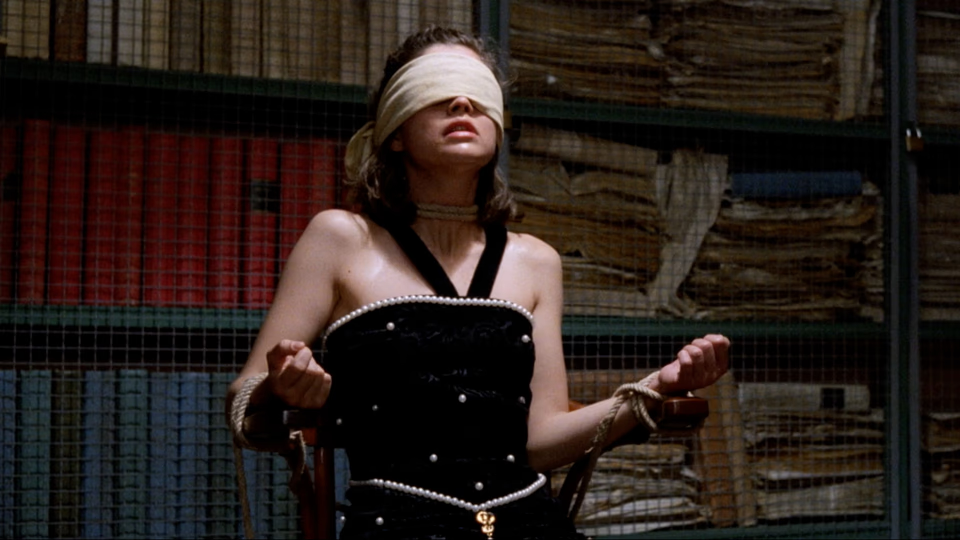Opera

Dario Argento’s Opera presents a filmmaker at the peak of his technical powers yet struggling with the very fundamentals of storytelling. Here is a movie that dazzles the retina while numbing the brain, a gorgeous failure that reminds us why visual virtuosity alone cannot sustain a thriller.
The film follows Betty, played by Cristina Marsillach, a young soprano thrust into the spotlight when she must replace the lead in a production of Macbeth. Her triumph quickly sours as a black-gloved killer begins murdering those around her, forcing her to witness each killing by taping pins beneath her eyes to prevent her from closing them. It’s a premise ripe with potential, echoing Lady Macbeth’s own tortured inability to unsee the horrors she has participated in.
Visually, Opera is Argento’s most accomplished work. Working with his largest budget to date, Argento casts the camera as a character itself, gliding through the baroque opera house with balletic precision. In one astonishing sequence he presents a literal bird’s-eye view as ravens circle above a panicked audience of hundreds.
Argento’s legendary color palette serves as emotional geography, while his kill sequences push boundaries with unflinching brutality. The pins under Betty’s eyes prefigure the torturous situations that would later define the Saw franchise, while an audacious slow-motion shot follows a bullet’s trajectory through a peephole, into a victim’s eye, and then out the back of their head.
Yet for all its visual poetry, Opera collapses under the weight of its own ambitions the moment anyone opens their mouth. The script, penned by Argento himself, creates in Betty one of cinema’s least engaging protagonists. She lacks both agency and basic survival instincts, at one point fleeing to the deserted opera house rather than seeking police protection. Marsillach’s performance doesn’t elevate the material; while convincing in her lip-synced opera scenes, she fails to generate the charisma needed to overcome the script’s contrivances.
This problem extends beyond our lead. The supporting characters behave with such baffling illogic—moving toward danger rather than away from it, responding to mortal threats with curious coyness—that they seem less like people than props being positioned for the next elaborate murder sequence. The true menace isn’t the killer but Argento’s script, which sacrifices character coherence for visual setpieces.
Argento compounds these problems with bizarre sonic choices. The director, known for his groundbreaking work with Goblin, inexplicably inserts heavy metal songs (with lyrics, no less) during kill sequences, transforming intimate horror into something resembling a music video. In another scene, the cacophony of raven calls continues long past its narrative usefulness, as though Argento is deliberately testing his audience’s tolerance.
Opera ultimately emerges as a frustrating experience—a film easier to admire than to embrace. Like an opera performed by technically brilliant but emotionally disconnected singers, it hits all the right notes without conveying the music’s soul. For a director whose best works balanced stylistic flourish with genuine emotional engagement, Opera represents a technically accomplished but dramatically hollow entry in an otherwise distinguished catalog.